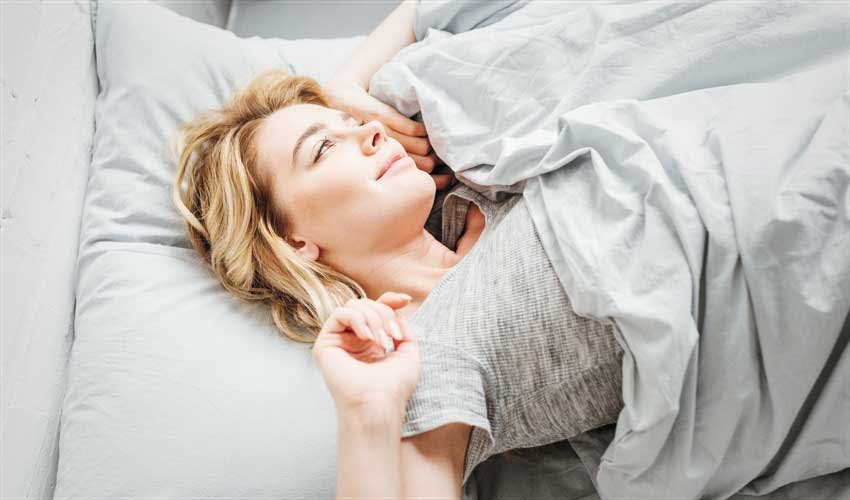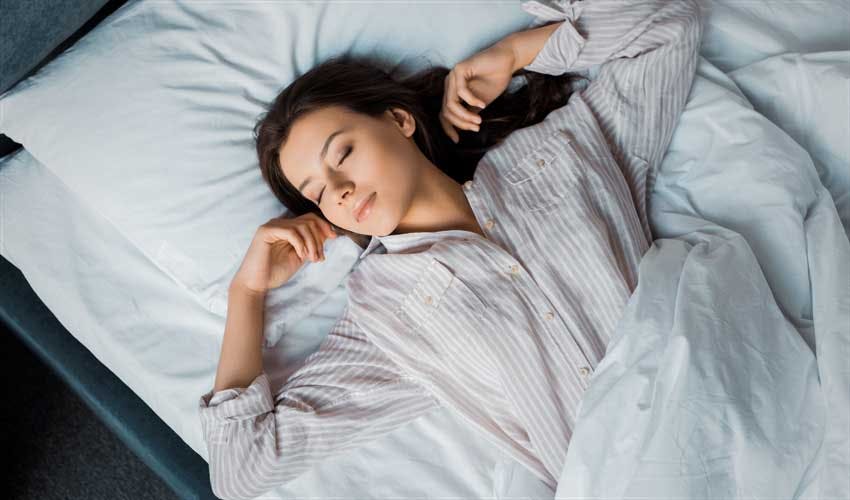It's no secret that hydration affects how we feel and move throughout the day. When we don't drink enough fluids, we might experience headaches, dizziness, and sluggishness. What many people don't understand is that dehydration may have a significant impact on your sleep quality. Excessive daily sleepiness (EDS) and dehydration have a tangible link.
Even slight dehydration before going to bed can interfere with your normal circadian cycle and create sleep problems. We'll explain the link between dehydration and sleep in this article.

Sleep and Hydration: Is There a Connection?
Not only will dehydration influence your daily life and health, but it will also impact your sleep quality. Even though your body is generally immobile during sleep, it is an active phase during which your body restores chemical balances, heals, and recovers. As the body experiences an average net water loss during sleep, tucking in dehydrated can harm your body's recovery capacity.
When you sleep, your brain analyses, transmits and retains all of the information you receive throughout the day. Suppose you don't get enough quality sleep. In that case, you may suffer from memory loss, difficulty concentrating when awake, mood fluctuations, a weaker immune system, poor balance, weight gain, and an increased risk of disease. When you go to bed dehydrated, your body will not be able to recover itself properly.
Three Ways to Avoid Sleep Dehydration
It is natural for the body to experience a net loss of water throughout the night, but you can take action to avoid dehydration and achieve better sleep overall.

1. Concentrate on High-Quality Sleep
Getting enough high-quality sleep is a crucial element of avoiding dehydration. During sleep, the body undergoes several complicated processes that allow for general health recuperation. Getting enough sleep allows these processes to occur and allow your circadian rhythm to control your body's fluid levels better.
Making sleep a priority is frequently the first step toward better sleep. Sleep hygiene is the idea of maintaining a consistent sleep pattern that allows you to get enough shut-eye. Good examples of sleep hygiene include:
- Limiting late-night electronic device usage.
- Creating a peaceful bedtime routine.
- Sleeping on a comfy mattress.

2. Try Out Different Water Options
You can also try out several water choices to avoid dehydration at night. Alkaline water is a type of water that helps you stay hydrated and gives you more energy. If you don't like the flavour of tap water, you can buy spring mountain water or filtered water. Check out this article on alkaline water and how it benefits your body to learn more!

3. Consume Water-Rich Vegetables and Fruits
Re-evaluate your daily food intake. Is it composed of fruits, vegetables, or water-rich foods? If the answer is "No," consider including cucumber, cabbage, milk, apple, and other water-rich foods in your diet. The list of water-rich foods and beverages is extensive. You should be aware that such foods and beverages account for 20% of your daily water intake.
Drinks that are healthy and sugar-free, such as milk and juice, are also a viable choice. They are not, however, a substitute for water.

Conclusion
Hydration and sleep are two interconnected aspects of living a healthy life; make sure to get plenty of both this week and every week!
Stay hydrated and enjoy better sleep with Ecobud's sustainable water bottles. Our environmentally friendly products like alkaline water filter jugs and reusable water bottles make it easier to get quality hydration that boosts your immune system. Visit our store page and browse through our sustainable products today!